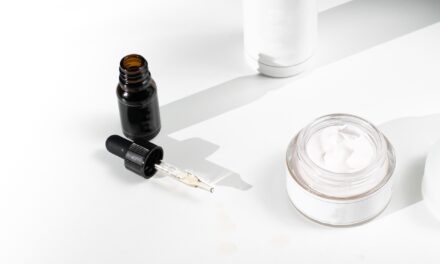Caring for Melanated Skin: An Essential Guide
When it comes to skincare, understanding your skin’s unique needs is the key to unlocking radiant, healthy skin. But what does “melanated skin” mean, and how does it influence the selection of skin care products for melanated skin? In essence, melanated skin refers to skin that contains more melanin, the natural pigment that gives our skin, hair, and eyes their color. If you have darker-toned skin, your skincare approach should be more gentle, focusing on avoiding skin trauma, irritation, and inflammation. This practical guide will help you navigate the process of choosing the right skin care products for melanated skin so your skin receives the care it deserves.

The practical science of melanin
The darker your skin tone, the more active the skin cells that produce melanin, the natural skin pigment. This pigment in darker skin is also quite stable and takes longer to degrade.
Skin trauma, like inflamed acne, scratches, or insect bites, can lead to changes in pigmentation. Often, these areas produce more melanin, leading to hyperpigmentation. Sometimes, however, these sites become lighter (hypopigmentation). The high melanin content and its stability mean that any uneven pigmentation in darker skin takes longer to disappear. Plus, darker-toned skin is often more prone to scarring.
The melanated skincare approach
Caring for melanated skin requires a more gentle approach. Opt for less concentration of actives, avoid physical scrubs and mechanical rubbing, and focus on avoiding harsh surfactants in cleansers and common irritants in cosmetics.
For example, if your skin tone is darker than light olive, it’s generally safer to avoid chemical peels with acid concentrations above 10%. If you’re introducing a strong skincare active, like a retinoid, start with a low percentage a few times a week. Monitor your skin’s reaction and only increase the concentration and frequency if your skin is tolerating it well.
If you’re dealing with acne, it’s risky to experiment with “natural remedies”. Opt instead for evidence-based, gentle acne treatments to prevent post-inflammatory pigmentation issues.
The importance of sun protection
Sunlight is the primary cause of persistent pigmentation issues for any skin tone. Therefore, daily broad-spectrum sun protection is crucial for melanated skin. This means your sunscreen should protect against both UVB and UVA rays – the latter leads to tanning, DNA damage, and pigmentation disorders.
Visible light can also contribute to pigmentation issues. To protect against this, consider tinted foundations or tinted sunscreens with iron oxides.
The winning formula for melanated skin
In conclusion, the winning formula for choosing the right care products for melanated skin and caring for your skin right involves:
- Extra gentle cleansing
- Effective and gentle moisturizing
- Extra caution and patience with actives and peels
- Avoiding unnecessary irritants in skincare (like fragrances and essential oils)
- Daily broad-spectrum sun protection
Understanding the unique needs of your melanated skin is the first step to achieving healthy, radiant skin. Choosing the right skin care products for melanated skin is crucial. Adopt a gentle approach, avoid skin trauma and find a sunscreen that you are happy to wear daily!
BEST SUNSCREEN SEARCH
WIMJ Sunscreen Search allows you to browse sunscreens from different brands and price points based on UV filters, additional ingredients, free-from ingredients, texture and other users’ reviews
Related Articles
Winter Skin Care: Navigating the Chilly Season with Healthy Skin
Let’s dive into understanding winter skin and how to best care for it.
The Dark Side of Lightweight Sunscreens
Do lightweight sunscreens provide enough sun protection? Lightweight sunscreen formulas have a higher risk of not providing the sun protection they promise. Learn more in this article.
Opting for Fragrance-Free Skincare: A Skin-Friendly Choice
Opting for Fragrance-Free Skincare: A Skin-Friendly ChoiceIs the smell of your skincare products hurting your skin? It's a question we often don't think about. Yes, the scents can be nice, but they can also cause problems. About one in three skin issues from cosmetics...
What Does Sensitive Skin Mean and How to Help It?
Discover what sensitive skin truly means. We break down the causes, symptoms, and potential triggers of sensitive skin, and share simple steps to manage and reduce skin sensitivity effectively.
Do You Really Need Custom-Made Skincare?
Custom-made skincare products have become a talking point recently. But are they an essential innovation in skincare or simply a captivating marketing gimmick? This blog post delves into whether personalized skincare truly offers advanced scientific solutions tailored to our unique needs or is it luring us into paying more for seemingly “perfect” products.
Is Skincare A Scam?
Is Skincare a Scam? "Is skincare a scam?", you might wonder after spending $$$ on products that don't work. Or better put, "does the beauty industry turn skincare into a scam?". In many ways, yes - unfortunately. As consumers, we crave innovation, seeking skincare...
Do I Need Sunscreen for Indirect Sunlight?
How often have you heard that sunscreen is key for protecting our skin from the sun? A lot, right? But, does this same rule apply when you’re in indirect sunlight, in the shade or on a cloudy winter day? The answer is yes. Here’s the explanation.
The Ultimate Guide to Sunscreens And Sun Protection
“Understanding why sunscreen is important in skincare is essential for maintaining youthful, healthy skin. Scientists have found that a staggering 80% of externally-caused skin aging is a result of sun damage. The effects? A variety of skincare woes such as pigmentation problems, scarring, and enlarged pores as we age. So, whether you’re dealing with anti-aging, acne, or pigmentation concerns, sunscreen is an irreplaceable part of your skincare routine. And remember, it’s vital for all skin tones – yes, even the darkest ones.”
The Ultimate Guide to Skin Cleansing
Daily skin cleansing is an essential part of skincare, but do we truly understand why we cleanse our skin and how it works? How often should we wash our skin? Let’s dive deep into the world of skin cleansing and clarify the typically overlooked basics.
How to Choose A Good Moisturizer?
Choosing the right moisturizer for your skin can be a daunting task. The market is awash with countless products, each promising to hydrate, protect, and nourish your skin. So, how do you make an informed choice? Let’s break down the evidence behind effects of moisturizers, debunk marketing myths, and learn how to choose the best moisturizer for your skin.




